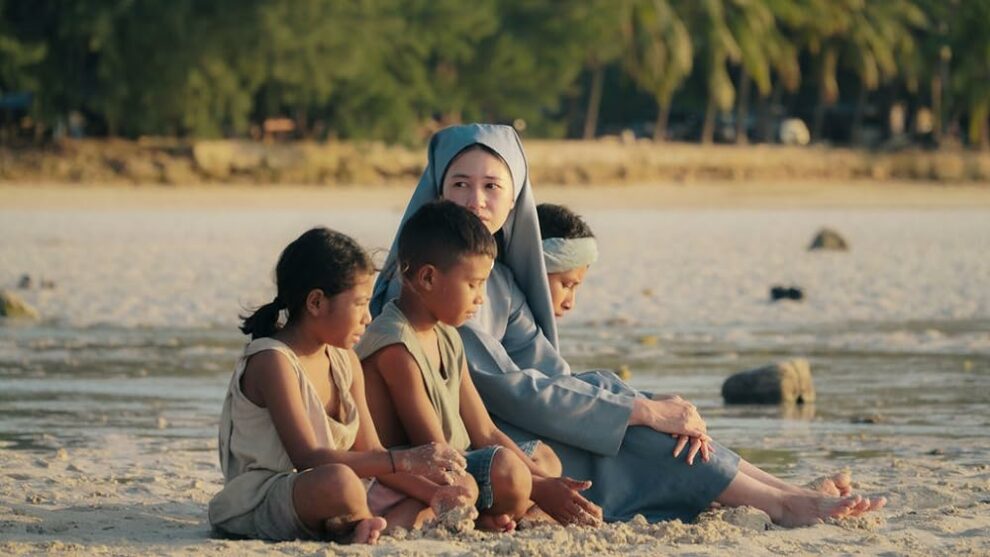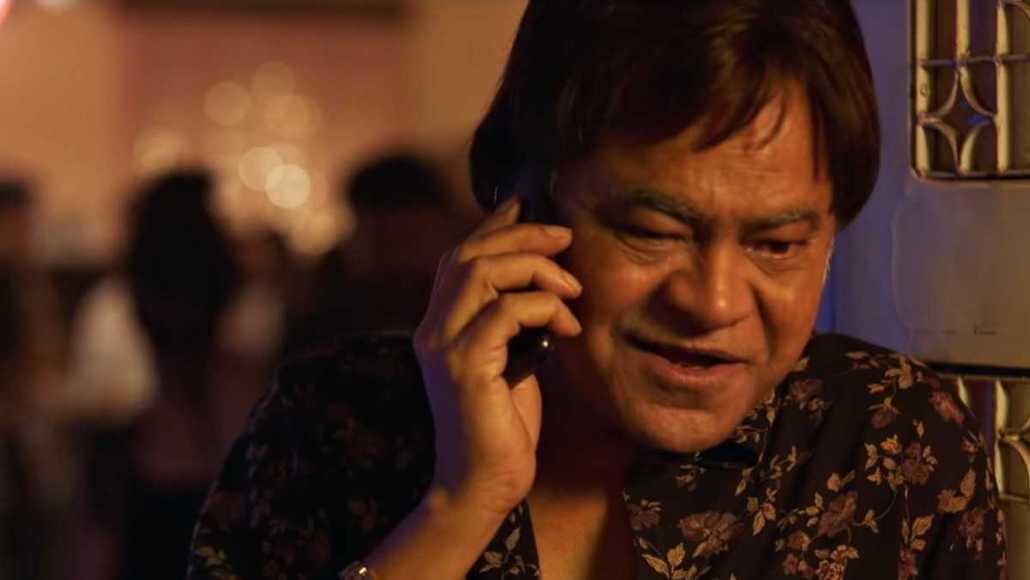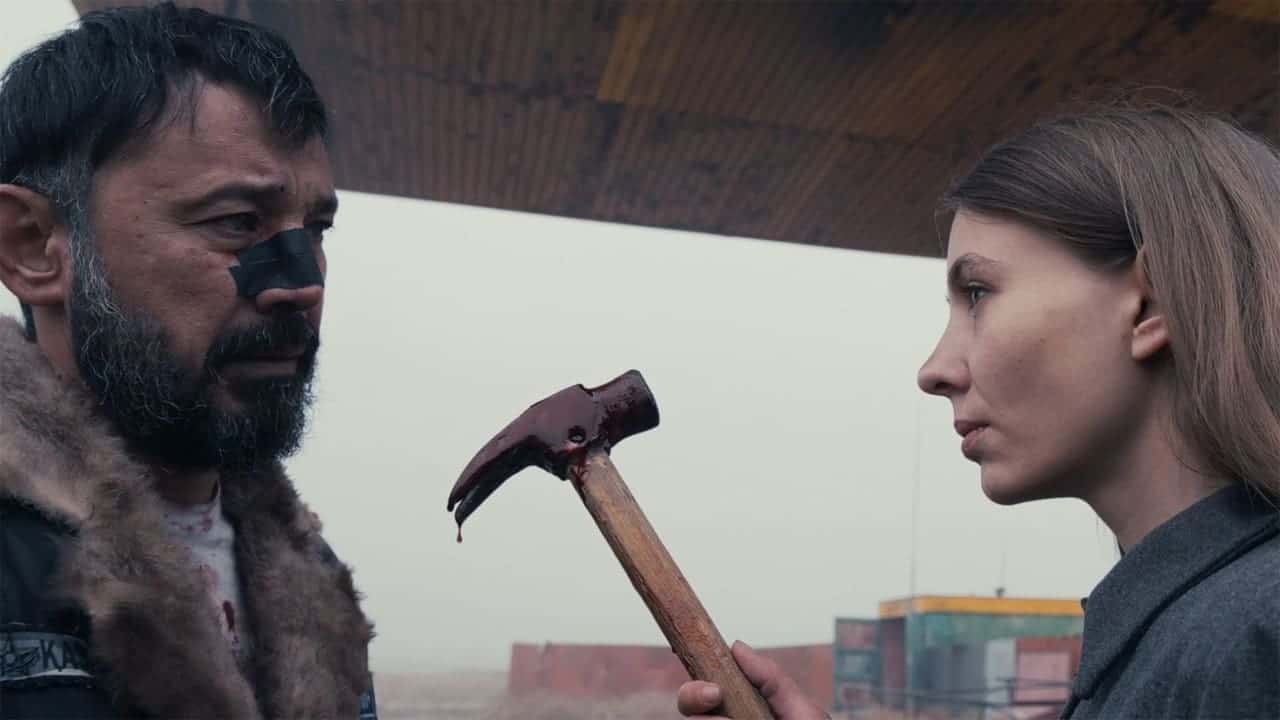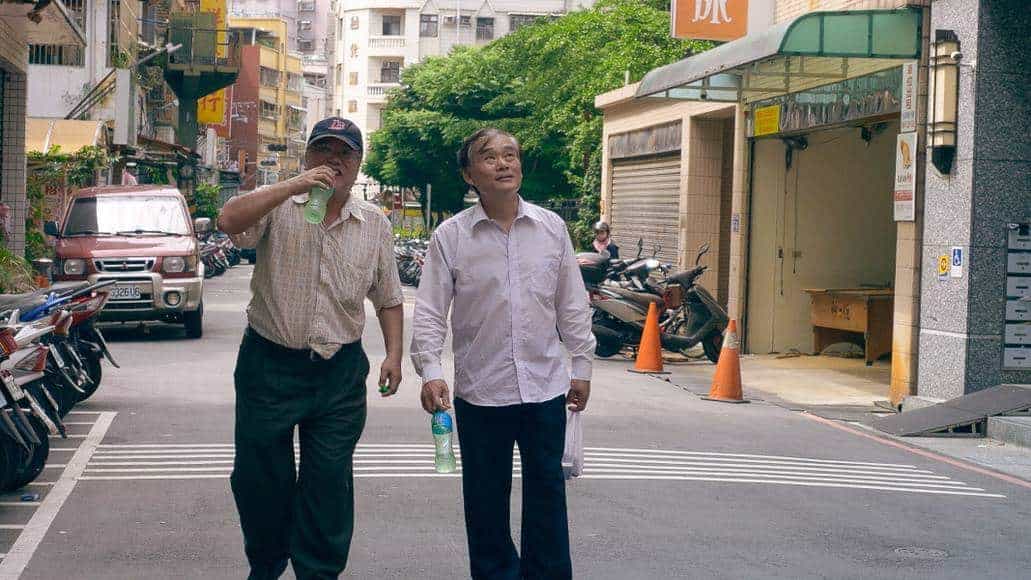Combining the religious base of his feature debut, “Ave Maryam”, with the social commentary regarding the labor market of “Cross the Line”, Razka Robby Ertanto attempts to come up with a film that unfolds in a number of levels. Let us see how he fares.
Yohanna is screening at International Film Festival Rotterdam

As the movie begins, we watch the titular nun running around with Malu, a girl who has left the convent she is living in some time ago, trying to rent a car in order to distribute relief to areas in Sumba, which was subjected to a number of natural disasters along with the consequences of Covid. They finally manage to secure one, but just after they arrive to their destination, the van is stolen. Alis, a little girl from the area, who seems to be exploited by a number of people who have her sell alcohol in the market and then take almost all the money she makes, starts functioning as their guide in their search, but soon Yohanna finds herself saving her as much as being saved. As the trio enter more and more deeply in the underbelly of illegal labor in Indonesia, the clash with the police, the people who are in charge of the ‘system' but also between them becomes more intense. At the same time, Yohanna's faith wavers more and more.
Check also this article
With the help of DP Odyssey Flores, Razka Robby Ertanto implements numerous tracking shots through handheld cameras that follow the protagonists, in an approach that results in the film functioning much like a documentary. This visual approach extends to the context of the movie, which is rather grounded in realism, particularly during the first part, with Ertanto presenting the exploitation of kids, and the way the police and essentially the corruption of the system allow something so appalling to happen in its darkest colors.
At the same time, this brings us to the next main point of the movie, regarding faith and the way Yohanna has her own challenged, as she witnesses a world where God seems to have forgotten. Ertanto actually plays with the concept, having her lie, gambling and eventually clashing with Malu, who used to look up to her and her faith, in one of the most appealing aspects of the movie.

Apart from the aforementioned realism, a sense that the protagonists are always in the presence of danger works quite well for the movie, inducing it with tension and a sense of agony that add to the entertainment the whole thing offers. This approach benefits the most by Diego Marx Dobles's editing, who implements a very fitting fast pace in this part. The non-linear approach could be a bit confusing in the beginning, but I felt that for the focused viewer, what is present and what is past becomes easily clear.
Furthermore, the acting is also on a very high level. Laura Basuki gives a great performance as the struggling, stupefied by what she witnesses but also resolved Yohanna, with her carrying the movie from beginning to end. Her interactions with the police and Malu are among the highlights of an overall excellent effort. The rest of the roles are played by non-actors, but Kirana Putri Grasela as Alis still manages to steal the show, while Iqua Tahlequa as Malu is quite convincing, with all the performances adding to the permeating realism of the movie.
Although the film would be if some moments, as the singing one, were omitted, the overall sense “Yohanna” leaves is quite good, particularly in the presentation of the particular social issue, while the occasionally impressive cinematography and the overall acting raise the level here even higher.















